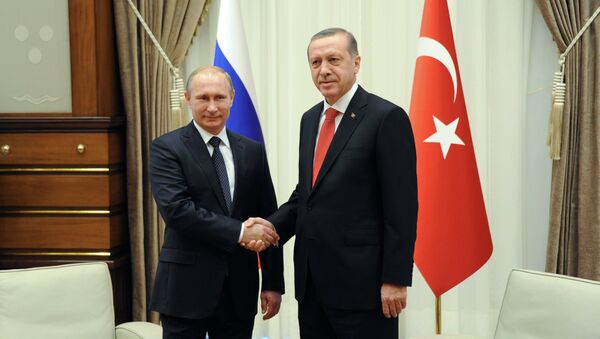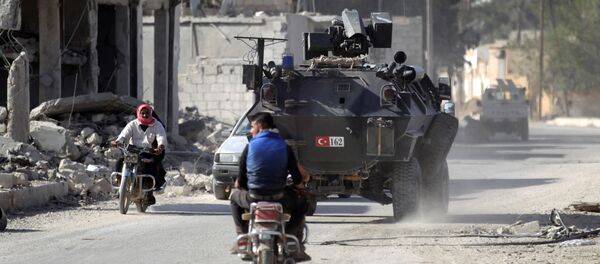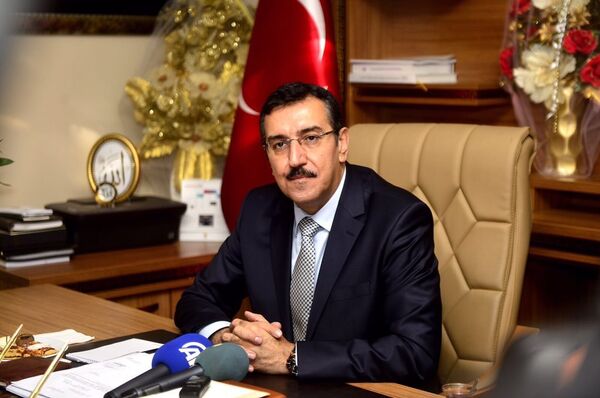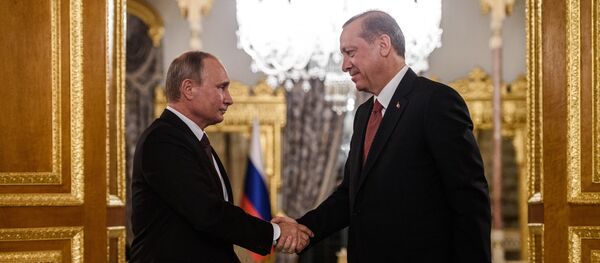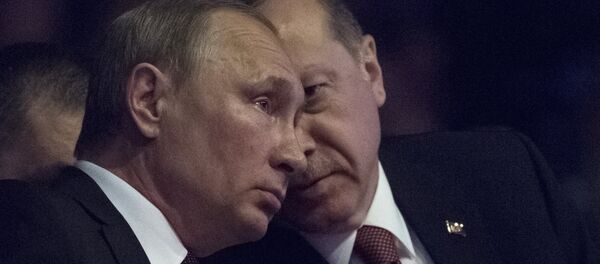According to Tufenkci, both countries have taken an array of important steps towards the normalization of bilateral relations since August 2016.
In particular, "sanctions have been lifted for Turkey supplying oranges, mandarins, apricots, peaches and plums to Russia. A spate of deals was clinched in the energy field. So we see the two countries' political accommodation adding to the development of their economic relations. In line with these developments we expect a significant increase in bilateral trade turnover," he said.
He described Russia as one of those countries with which Turkey is developing "the most intense and profitable relationship," saying that Turkey and Russia are known for their long-term historical and cultural ties.
"Our relationship based on bilateral cooperation has been exposed to a serious unnecessary test, but thanks to the will and desire of the Russian and Turkish people both countries have laid the foundation for new relations," Tufenkci said.
He added that developing the food sector, tourism, construction and the automotive industry remains key priorities for Turkey, while Russia focuses on investments in the energy sector and increasing energy exports to Western countries.
"We can say that our political and economic relations with Russia, our closest long-term trading partner, will be further strengthened and we will be able to quickly overcome the consequences of the negative events that occurred at the end of 2015," he pointed out.
He also underscored the importance of bolstering bilateral energy ties, pointing to Moscow and Ankara clinching a raft of agreements on the construction of the Akkuyu nuclear power plant and the Turkish Stream gas pipeline.
"Currently, Russian-Turkish economic relations are returning to their former level, and I am confident that we will be able to build even more robust bilateral economic cooperation in the future," he said.
In this vein, he expressed hope that the two countries will manage to reach the goal of up to $100 billion in trade turnover through the implementation of joint major projects.
He emphasized that the implementation of these large-scale projects is will be based on a "pragmatic policy." According to Tufenkci, strengthening peace in the region is closely linked to the sustainable implementation of the large-scale projects.
"From a political point of view, our views can differ but must not be at odds over such issues as peace in the region," he said, adding that the political atmosphere of "instability and uncertainty" has a "very negative impact on the regional economy."
Warning that no economic interests can be built on the suffering of oppressed people, "especially innocent children," Tufenkci expressed confidence that the highest level political dialogue between Russia and Turkey will add considerably to bilateral economic cooperation.
In 2015, the trade turnover between the two states reached $23.3 billion, according to the Russian Federal Customs Service.

